Concord residents voice rare opposition to reopening debate on location of new middle school
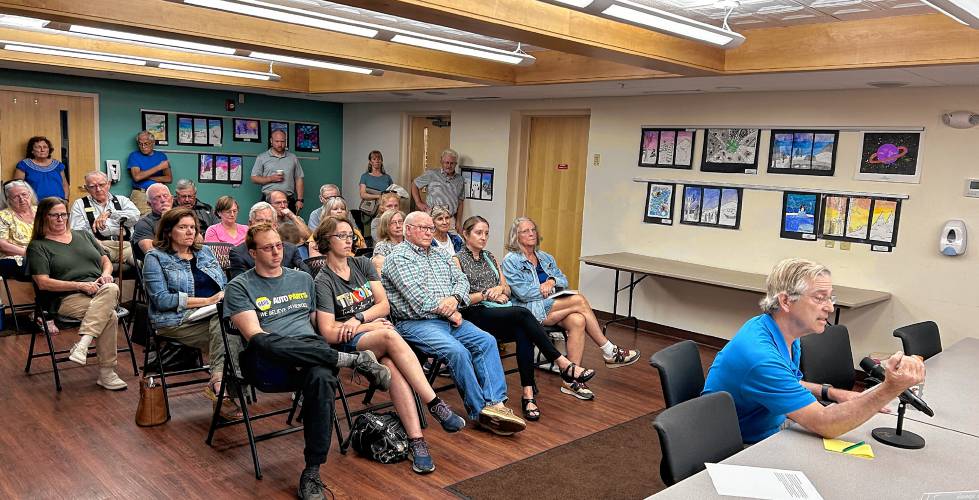
Bert Cooper speaks at a Concord School Board meeting on Aug. 29. JEREMY MARGOLIS/ Monitor staff
|
Published: 08-29-2024 11:38 PM
Modified: 09-01-2024 11:38 AM |
Ally Snell, the mother of a third grader at the Abbot-Downing School, had never attended a Concord School Board meeting until Thursday night.
But, a day after the board’s clerk certified a citizens’ petition that could re-open deliberations on the location of the school district’s new middle school, she felt compelled to show up and express a perspective not often heard in recent months.
“As a parent of a student who is deeply impacted by this decision, we are doing our children a disservice to put politics and games before the very real and dire need to get the job done,” said Snell, who lives within walking distance of the current Rundlett Middle School.
At a special meeting scheduled Thursday, Snell was one of several residents who opposed two amendments to the school board’s charter that would force the board to get voter approval to relocate school buildings.
Concord’s school board is the only one in the state that operates entirely autonomously, meaning that it doesn’t need the approval of the city council or town meeting voters to pass its budget or to issue bonds to build new schools. The charter amendments – if voted for by a majority of residents of the school district – would change that.
The first amendment would require a vote before the location of any school building is relocated, while the second would call for a vote whenever the school district wants to sell its property.
It’s unclear whether the amendments would even apply to the location of the middle school. While the school has yet to be relocated, members voted last December to move it from its current location in the city’s South End to a new site next to the Broken Ground School on the city’s east side.
The state Attorney General’s office, which reviewed the proposed amendments and found they didn’t violate any state laws, took no position on whether “retroactive application” would be allowed. It’s possible that the amendments’ passage would set off a lengthy legal battle over the issue.
Article continues after...
Yesterday's Most Read Articles
 House committee defunds relief program for mothers and children, spares SNAP incentives
House committee defunds relief program for mothers and children, spares SNAP incentives
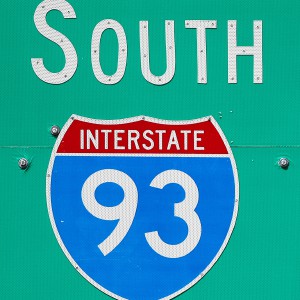 No high-speed E-ZPass at Hooksett tolls for at least two months
No high-speed E-ZPass at Hooksett tolls for at least two months
 New Hampshire law enforcement to step up traffic enforcement on Route 106
New Hampshire law enforcement to step up traffic enforcement on Route 106
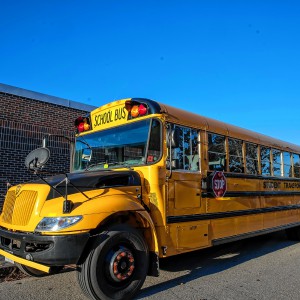 Schools in Lakes Region explore creating a special education school to bring down costs
Schools in Lakes Region explore creating a special education school to bring down costs
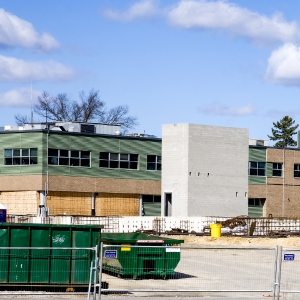 Work continues on new state psychiatric hospital in Concord
Work continues on new state psychiatric hospital in Concord
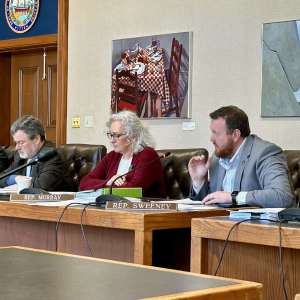 House committee reverses vote, adopts prohibition on DEI activities and spending
House committee reverses vote, adopts prohibition on DEI activities and spending
The charter amendments were proposed in May by a community group called the Concord Concerned Citizens, whose members have argued that relocating the middle school would be more expensive than rebuilding at the current site, would cause traffic and safety issues, and would negatively affect the environment and habitat at the new site.
This spring and summer, they gathered over 1,500 signatures from residents, surpassing the threshold of approximately 1,050 needed to get charter amendments on voters’ ballots.
The community group and like-minded residents have been exceedingly vocal in expressing their displeasure with the school board in recent months. In contrast, supporters of the selected location or those who simply don’t want to revisit it have, until Thursday, largely kept quiet.
During public comment at Thursday’s meeting, which was attended by approximately 30 people, an equal number of people – in a departure from typical recent meetings – voiced opposition and support for the charter amendments.
Rebecca Lovell, an elementary school parent, agreed with Snell that potentially backtracking on the decided location of the middle school would be a mistake.
“This process has been going on eight years. Why are we adding more red tape to it?” she asked. “My son will probably graduate college before we have a middle school.”
The school board has been working with a design firm for several months and has said that starting over in a new location would waste money already expended and delay the project – though it is unclear by how much. The board has also said that starting over could put the district at risk of missing out on state building aid, though the rules will allow Concord to pass on aid without losing its spot in line.
Construction on the project, which has been capped at $152 million, would not begin until January 2026 and would not be completed until the summer of 2028 under the current timeline
Former school board member Bill Glahn said he “truly has no opinion” on the location of the middle school, but a “definite opinion” on the charter amendments.
“Bonds, financing, and all the work that goes into that can’t be undone by public vote or nothing would ever happen,” he said.
Glahn acknowledged that Concord is anomalous with respect to the autonomy of its school board, but he argued that uniqueness is beneficial. Other communities “are in a constant political fight” that prevents progress, he said.
Of course, those other communities do ultimately successfully build new schools, as well. For example, the Allenstown Community School, the newest school in the area, opens next week. Voters approved it in 2021 – several years after they had rejected a similar proposal.
Supporters of the amendments said Thursday a popular vote is the New Hampshire way.
“The idea that the board would want to go against the public vote after they’ve claimed just a small group of activists are against this would be seemingly pretty anti-democratic,” said Bert Cooper.
Charlie Russell agreed, and threatened that refusing to put the amendments on the ballot would “open a couple more chapters” in the controversy.
Unless it launches a legal challenge, the board is required to put the amendments on an upcoming ballot, but it has some latitude over which ballot the amendments go on. Board members appeared to indicate on Thursday that they hope to put them on the upcoming November ballot.
An official hearing on the amendments is scheduled for Sept. 9.
Jeremy Margolis can be contacted at jmargolis@cmonitor.com.







 Henniker ponders what is a ‘need’ and what is a ‘want’
Henniker ponders what is a ‘need’ and what is a ‘want’ Boscawen residents vote to fund major renovation of public works building
Boscawen residents vote to fund major renovation of public works building ‘Voting our wallets’: Loudon residents vote overwhelmingly against $1.7M bond for new fire truck
‘Voting our wallets’: Loudon residents vote overwhelmingly against $1.7M bond for new fire truck In Pembroke, Education Freedom Accounts draw debate, voters pass budget
In Pembroke, Education Freedom Accounts draw debate, voters pass budget
